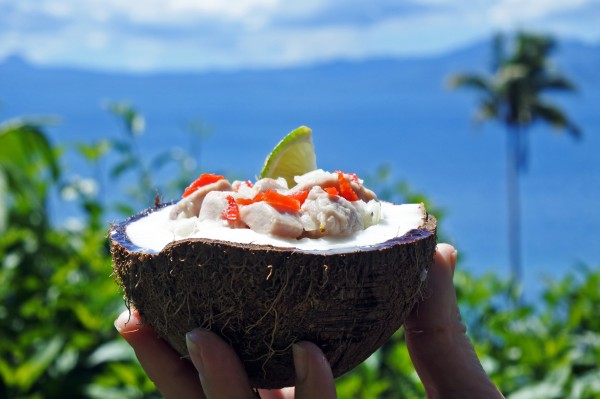References
- Pacific Islands Forum Secretariat. (2011, 7 September). Pacific Islands Forum Forum Communique. Forty-Second Pacific Islands Forum, Auckland, New Zealand.
- World Health Organization. (2011, 28 June 2011). Ninth Meeting of Ministers of Health for the Pacific Island Countries - Outcome Document. Meeting of Ministers of Health for the Pacific Island Countries, Honiara, Solomon Islands.
- Hattersley, L., & Mandeville, K. L. (2023). Global Coverage and Design of Sugar-Sweetened Beverage Taxes. Global Health, 6(3), e231412. https://doi.org/10.1001/jamanetworkopen.2023.1412
- World Health Organization. (2022). Fiscal policies to promote health diets: policy brief.
- Andreyeva, T., Marple, K., Marinello, S., Moore, T. E., & Powell, L. M. (2022). Outcomes Following Taxation of Sugar-Sweetened Beverages: A Systematic Review and Meta-analysis. JAMA Netw Open, 5(6), e2215276. https://doi.org/10.1001/jamanetworkopen.2022.15276
- Teng, A. M., Jones, A. C., Mizdrak, A., Signal, L., Genc, M., & Wilson, N. (2019). Impact of sugar-sweetened beverage taxes on purchases and dietary intake: Systematic review and meta-analysis. Obes Rev, 20(9), 1187-1204. https://doi.org/10.1111/obr.12868
- Teng, A., Snowdon, W., Win Tin, S. T., Genç, M., Na’ati, E., Puloka, V., Signal, L., & Wilson, N. (2021). Progress in the Pacific on sugar-sweetened beverage taxes: systematic review of policy changes from 2000 to 2019. Aust N Z J Public Health, 45(4), 376-384.
- Walby, E., Jones, A. C., Smith, M., Na’ati, E., Snowdon, W., & Teng, A. M. (2023). Food tax policies in Pacific Island Countries and Territories: systematic policy review. Public Health Nutrition, 27(1). https://doi.org/10.1017/s1368980023002914
- Teng, A., Puloka, V., Genc, M., Filimoehala, O., Latu, C., Lolomana'ia, M., Osornprasop, S., Signal, L., & Wilson, N. (2020). Sweetened beverage taxes and changes in beverage price, imports and manufacturing: interrupted time series analysis in a middle-income country. Int J Behav Nutr Phys Act, 17(1), 90. https://doi.org/10.1186/s12966-020-00980-1
- Teng, A., Buffiere, B., Genc, M., Latavao, T., Puloka, V., Signal, L., & Wilson, N. (2021). Equity of expenditure changes associated with a sweetened-beverage tax in Tonga: repeated cross-sectional household surveys. BMC Public Health, 21(1), 149. https://doi.org/10.1186/s12889-020-10139-z
- Hernandez, F. M., Cantoral, A., & Colchero, M. A. (2021). Taxes to Unhealthy Food and Beverages and Oral Health in Mexico: An Observational Study. Caries Res, 55(3), 183-192. https://doi.org/10.1159/000515223
- Rogers, N. T., Cummins, S., Forde, H., Jones, C. P., Mytton, O., Rutter, H., Sharp, S. J., Theis, D., White, M., & Adams, J. (2023). Associations between trajectories of obesity prevalence in English primary school children and the UK soft drinks industry levy: An interrupted time series analysis of surveillance data. PLoS Med, 20(1), e1004160. https://doi.org/10.1371/journal.pmed.1004160
- Sánchez-Romero, L. M., Penko, J., Coxson, P. G., Fernández, A., Mason, A., Moran, A. E., Ávila-Burgos, L., Odden, M., Barquera, S., & Bibbins-Domingo, K. (2016). Projected Impact of Mexico’s Sugar-Sweetened Beverage Tax Policy on Diabetes and Cardiovascular Disease: A Modeling Study. PLOS Medicine, 13(11), e1002158. https://doi.org/10.1371/journal.pmed.1002158
- Greenwood, D. C., Threapleton, D. E., Evans, C. E., Cleghorn, C. L., Nykjaer, C., Woodhead, C., & Burley, V. J. (2014). Association between sugar-sweetened and artificially sweetened soft drinks and type 2 diabetes: systematic review and dose-response meta-analysis of prospective studies. Br J Nutr, 112(5), 725-734. https://doi.org/10.1017/S0007114514001329
- Grout, L., Mizdrak, A., Nghiem, N., Jones, A. C., Blakely, T., Ni Mhurchu, C., & Cleghorn, C. (2022). Potential effect of real-world junk food and sugar-sweetened beverage taxes on population health, health system costs and greenhouse gas emissions in New Zealand: a modelling study. BMJ Nutr Prev Health, 5(1), 19-35. https://doi.org/10.1136/bmjnph-2021-000376
- Blakely, T., Cobiac, L. J., Cleghorn, C. L., Pearson, A. L., van der Deen, F. S., Kvizhinadze, G., Nghiem, N., McLeod, M., & Wilson, N. (2015). Health, Health Inequality, and Cost Impacts of Annual Increases in Tobacco Tax: Multistate Life Table Modeling in New Zealand. PLoS Med, 12(7), e1001856. https://doi.org/10.1371/journal.pmed.1001856
- Sassi, F., Belloni, A., Mirelman, A. J., Suhrcke, M., Thomas, A., Salti, N., Vellakkal, S., Visaruthvong, C., Popkin, B. M., & Nugent, R. (2018). The Lancet Taskforce on NCDs and economics 4: Equity impacts of price policies to promote healthy behaviours. Lancet, 391(10134), 2059-2070. https://doi.org/10.1016/s0140-6736(18)30531-2
- Peniamina, R., McNoe, B., Kerr, J., Cleghorn, C., & Signal, L. (2023). Strong public support for healthy food policies in Aotearoa: The Briefing. https://www.phcc.org.nz/briefing/strong-public-support-healthy-food-policies-aotearoa
- Radio New Zealand. (2023, 30 November 2023). New Caledonia passes first sugar tax bill. RNZ. Retrieved January from https://www.rnz.co.nz/international/pacific-news/503496/new-caledonia-passes-first-sugar-tax-bill#:~:text=It%20applies%20at%20the%20following,Pacific%20Francs%20(CFP%2C%200.55%20US
- Scarborough, P., Adhikari, V., Harrington, R. A., Elhussein, A., Briggs, A., Rayner, M., Adams, J., Cummins, S., Penney, T., & White, M. (2020). Impact of the announcement and implementation of the UK Soft Drinks Industry Levy on sugar content, price, product size and number of available soft drinks in the UK, 2015-19: A controlled interrupted time series analysis. PLoS Med, 17(2), e1003025. https://doi.org/10.1371/journal.pmed.1003025
- Rogers, N. T., Pell, D., Mytton, O. T., Penney, T. L., Briggs, A., Cummins, S., Jones, C., Rayner, M., Rutter, H., Scarborough, P., Sharp, S., Smith, R., White, M., & Adams, J. (2023). Changes in soft drinks purchased by British households associated with the UK soft drinks industry levy: a controlled interrupted time series analysis. BMJ Open, 13(12), e077059. https://doi.org/10.1136/bmjopen-2023-077059
About the Briefing
Public health expert commentary and analysis on the challenges facing Aotearoa New Zealand and evidence-based solutions.
Subscribe

Public Health Expert Briefing
Get the latest insights from the public health research community delivered straight to your inbox for free. Subscribe to stay up to date with the latest research, analysis and commentary from the Public Health Expert Briefing.

